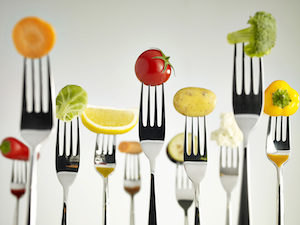 Energy can be a fleeting feeling. One moment we have it in manic spades and the next we can hardly keep our heavy eyelids up. Able investigates.
Energy can be a fleeting feeling. One moment we have it in manic spades and the next we can hardly keep our heavy eyelids up. Able investigates.
From Able Magazine #109 (January/February 2014), by Tom Jamison
The New Year is that time when we take a long hard look at ourselves. As Victor Hugo might have said: it can be the best of times, it can be the worst of times, and indeed in many cases it can prompt, if not a revolution, maybe a resolution.
We can either look critically at the past year and the recent indulgences of the holiday season or choose to look ahead and make a vow to improve fitness and get more out of life. Whilst I can’t help you with the former, Able Magazine has spoken with experts to help you to find that extra energy, the extra spark that might get the next 12 months off to a flier.
Energy is a genuine golden goal to aspire to. Of course, it’ll mean different things to different people and so the tips and advice that follow can be scaled appropriately to either setbacks, or hopefully, progress – in which case, you’ll want to drink in more of the elixir. In any case nobody wants to ‘die trying’ so Able has contacted experts in three main fields relating to the overall subject: Nuffield Health to talk about exercise, the British Nutrition Foundation to talk about diet and the Sleep Council to talk about, well, sleep.
Exercise
Designing a regime of exercise will lead to better wellbeing through improved muscle, lower weight and overall body conditioning. Starting small can help you to see glimpses of a brighter future as you build up step by step.
Advice from Nuffield Health about increasing energy levels:
Exercise/fitness
Low, moderate and vigorous intensities can help. Increased fitness levels are associated with better energy levels and associated with release of ‘feel good hormones’.
Get outside
Sunlight can increase levels of Vitamin D.
Make it sociable
Friends and social situations are fun and the other people can help support you in your efforts.
Relaxation
Allow your body to recover from stresses, such as exercise and work: Tai chi, Yoga, Pilates, meditation, relaxing music, hot baths and aromatherapy can all help.
Rest
Observe good ‘sleep hygiene’ ie: regular sleep patterns. Use a wind down routine to help you fall asleep at night.
Take regular breaks at work
Hydration
All of the body’s cells function in water, so concentration and physical capacity can be compromised when dehydrated.
Diet
Certain foods/drinks can help with energy but are just short term and result in ‘lows’ later on. Use foods that stabilise energy release (blood sugar balance) and combine protein and fats.
Ensure you are consuming fresh fruit and vegetables to provide you with nutrients that help the body use energy and stay resilient to stress. Eat regularly (every 4 hours) but in a relaxed environment.
Avoid stimulants and alcohol that can lead to energy peaks and troughs and reduce quality of sleep.
Avoid sugars – even from fruit juices as well as more obvious sources that lead to quick energy release, followed by a ‘slump’.
Check out Part 2 here.



